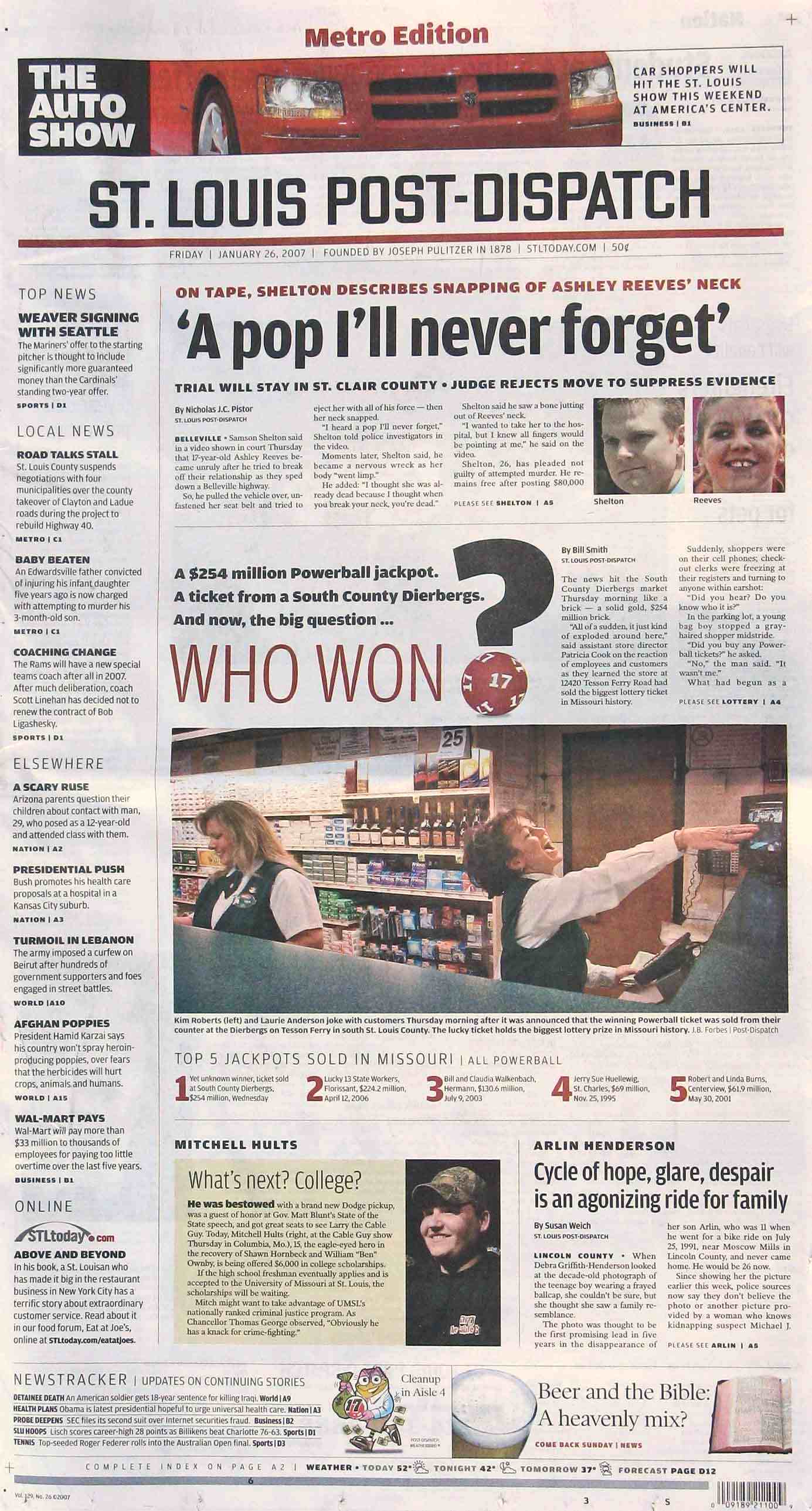Because I’ve taken the time to read my local newspaper today, I am well-informed. I now know that everybody at the South St. Louis County Dierberg’s grocery store is excited that the winning Powerball ticket was sold right there.
But that’s not all.
Under “Top News,” I can read that the St. Louis Cardinals probably will not be signing a pitcher who was with them last year.
But there’s more: From a local trial, we now know how a St. Louis area man allegedly broke his girlfriend’s neck. And there’s even more news: The colorful banner at the top of the front page reminds me to get ready for this week’s Auto Show at the downtown convention center. Don’t forget the teaser at the bottom right: Buy Sunday’s paper and you can read an article about beer and the Bible.
All of this important information on a single front page! Can you believe that they make their reporters spend years at journalism schools in order to write things like this?

If I were a journalist who worked for this newspaper, this front page would embarrass me. I would keep it a secret that I worked for this paper.
The St. Louis Post Dispatch is not a locally-owned newspaper. It is owned by Lee Enterprises. If you visit the website homepage of Lee Enterprises, you will see lots of web headlines about growing the revenue, increasing the circulation and controlling the costs. You will not see the word “journalism.” …

